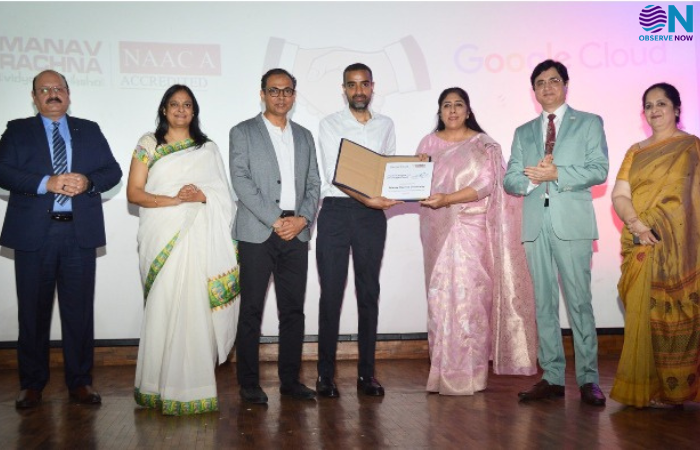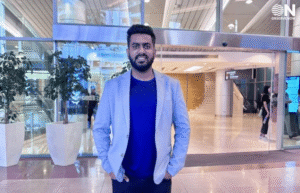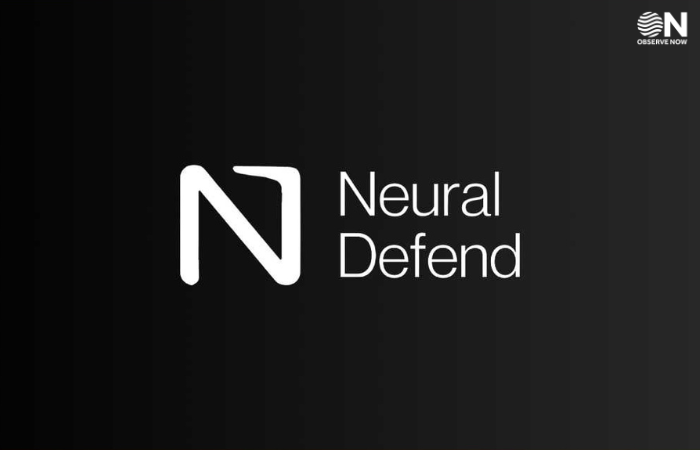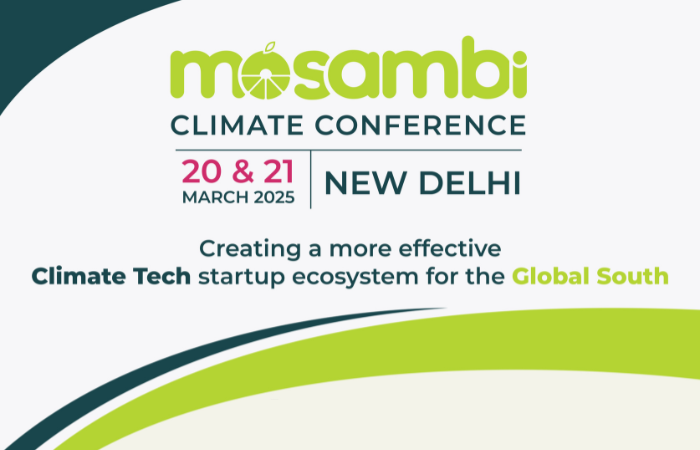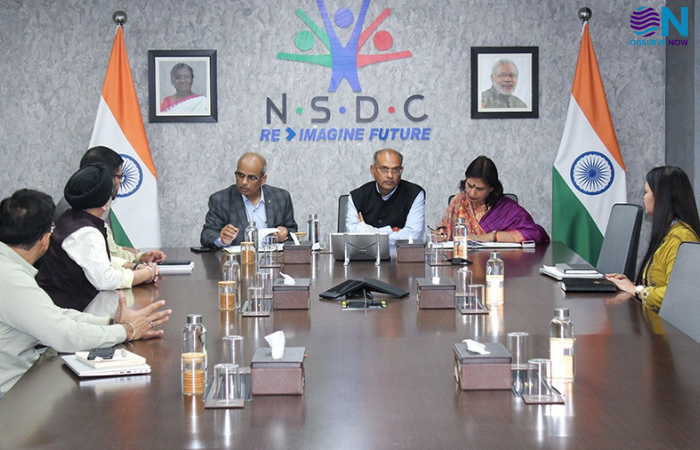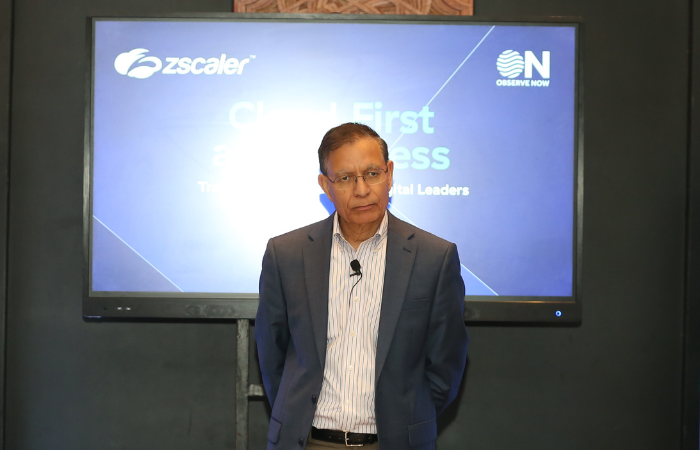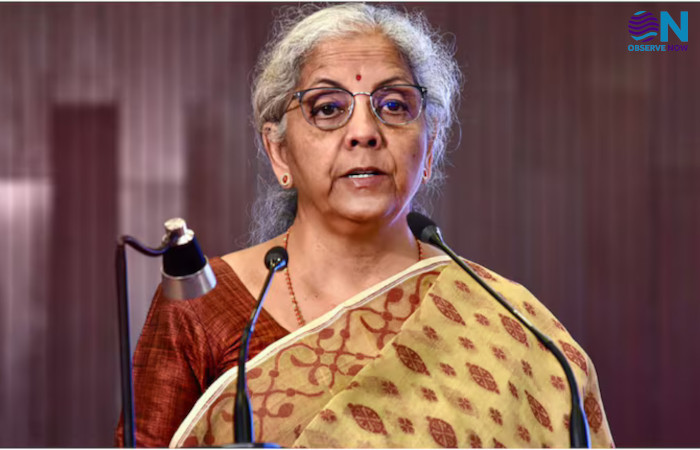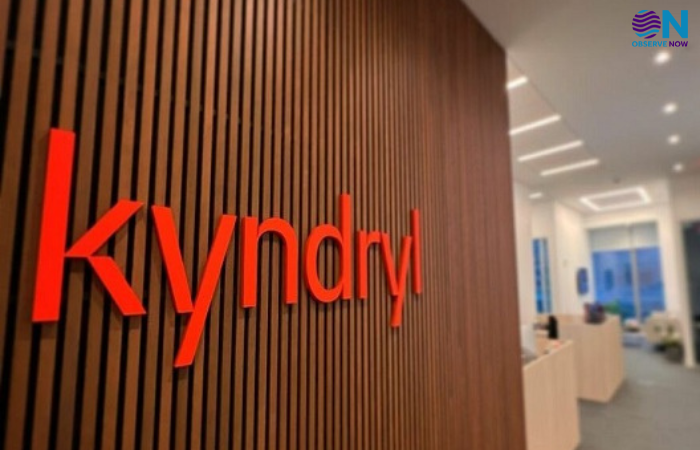Manav Rachna University Partners with Google Cloud and Larsen & Toubro to Enhance Student Learning and Career Growth
Manav Rachna University (MRU) has entered into strategic collaborations with Google Cloud and Larsen & Toubro (L&T) to enhance learning opportunities, integrate industry-driven curricula, and equip students with future-ready skills. These collaborations will ensure that MRU students receive specialized training aligned with industry needs, strengthening their career prospects in technology and engineering fields.
Speaking on the occasion, Rajiv Kapoor, Managing Director & CEO, Manav Rachna Educational Institutions, emphasized, “The future belongs to those who innovate, adapt, and stay ahead of industry trends. We are creating a transformative learning ecosystem where students gain hands-on experience, industry certifications, and direct exposure to real-world challenges.”
Prof. Deependra Kumar Jha, Vice Chancellor, Manav Rachna University, added, “As industries evolve, so must our education system. This initiative empowers the students with the skills and practical knowledge needed to excel in emerging fields, ensuring they are not just job-ready but industry leaders of tomorrow.”
The collaboration with Google Cloud focuses on advancing digital education and skilling through the Digital Campus for Google Cloud (DCGC) Program. This initiative will support students pursuing B.Tech (Core CSE and Gen AI specialization), BCA (Cloud Computing), BBA (Business Analytics), and MBA (Business Analytics) by providing access to Google Workspace for Education Plus. The integration of Google’s cloud-based enterprise-class platform will streamline academic operations, enhance faculty-student engagement, and offer real-time collaboration tools for all CSE students.
Sanjay Kathuria, Regional Lead, Google Workspace, said, “Technology is evolving rapidly, and organizations today are looking for professionals who have real-world experience in cloud computing and artificial intelligence. Through this collaboration, students will gain access to cutting-edge digital tools, industry-recognized certifications, and opportunities to engage with experts, ensuring they are well-prepared for careers in the digital economy.”
Under this MoU, students will have the opportunity to enroll in online certification programs, including free certifications and subsidized options for advanced courses. Google will also provide placement opportunities for students who achieve the Google Cloud Associate Cloud Engineer certification, thereby enhancing their career prospects in the tech industry. Additionally, an Annual 12-hour Hackathon will be organized, allowing students to demonstrate problem-solving skills using Google technologies.
Further strengthening the hands-on learning experience, MRU will establish a Chrome & AI Lab, providing a dedicated space for AI-enabled research, collaboration, and skill development. This initiative is expected to benefit both students and faculty, ensuring they remain at the forefront of technological advancements.
MRU’s MoU with Larsen & Toubro (L&T) marks a significant step toward enhancing industry-aligned education, particularly in engineering and technology. This partnership introduces a blended learning model, combining self-paced e-learning, live virtual expert sessions, and on-campus practical training. The curriculum, designed by leading industry professionals, will equip students with in-demand skills relevant to evolving market needs.
A key highlight of the L&T collaboration is access to L&T EduTech’s Learning Management System (LMS), a user-friendly platform that offers students real-time tracking of progress, module-wise performance monitoring, and industry-relevant assessments. Additionally, students will benefit from a virtual lab, allowing them to practice on advanced software tools and engage in unlimited project-based learning.
Febin M. F., Head-College Connect Business, L&T EduTech, shared her thoughts on the partnership, saying, “At L&T, we believe in integrating industry expertise with academic learning. This collaboration will provide students with real-world insights, helping them develop skills that are directly applicable to modern engineering challenges.”
To provide specialized training in the electric vehicle (EV) sector, L&T will establish an e-Mobility Lab at MRU. This lab will focus on EV technology training, including battery packs, battery management systems (BMS), power electronics, and electrical machines. Students will have unlimited opportunities to work on assignments and projects, gaining hands-on expertise in this fast-growing sector.
Prof. Dipali Bansal, Dean, School of Engineering, Manav Rachna University, highlighted the significance of providing students and faculty with cutting-edge learning resources. “Engineering education today must go beyond textbooks and theory. By integrating real-world applications, advanced technology training, and industry-driven projects, we are enabling our students to develop critical problem-solving skills and technical expertise.”


